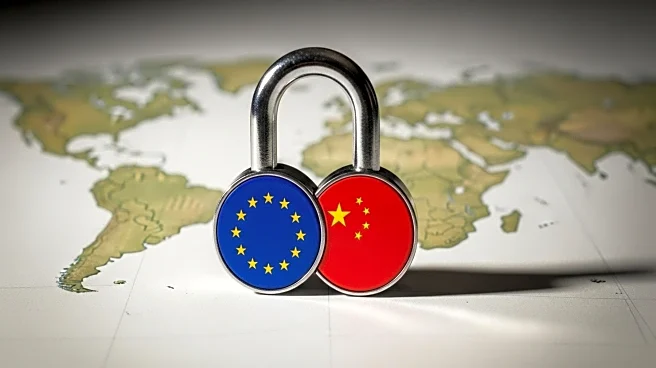What's Happening?
Poland has closed its border with Belarus, a move that threatens to disrupt trade between the European Union and China. The closure affects the China-Europe Railway Express, a key trade route that has seen significant growth in cargo volumes and value over the past year. Chinese Foreign Minister Wang Yi visited Warsaw to discuss the situation with Polish officials, emphasizing the importance of maintaining stable international industrial and supply chains. Despite China's concerns, Poland's decision appears influenced by security considerations rather than trade logic. The United States is reportedly supportive of the closure, as it aligns with their pressure on the EU to impose tariffs on China due to Russian oil and gas exports.
Why It's Important?
The border closure has significant implications for EU-China trade, particularly affecting China's inland western provinces that rely heavily on rail links. The disruption could impact industries dependent on this trade route, although it is not deemed critical overall. The closure also reflects broader geopolitical tensions, with the U.S. potentially benefiting from the situation as it aligns with their strategic interests against China. The move may also indicate a shift in Poland's priorities from trade to security, which could influence future EU-China relations and trade policies.
What's Next?
The closure raises questions about potential reactions from major stakeholders, including China, Belarus, and Russia. It remains uncertain whether the disruption will prompt significant diplomatic or economic responses. The U.S. may continue to support Poland's stance, while the EU's lack of immediate reaction suggests a possible alignment with the closure. Future negotiations or policy changes could emerge as countries assess the long-term impact on trade and security.
Beyond the Headlines
The border closure highlights the complex interplay between trade and security in international relations. It underscores the influence of geopolitical strategies on economic decisions, with the U.S. leveraging the situation to advance its interests. The event may also prompt discussions on the resilience of global supply chains and the need for diversified trade routes to mitigate such disruptions.









